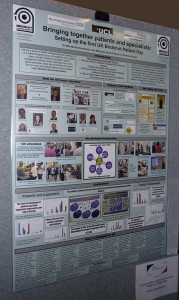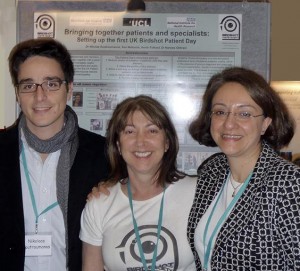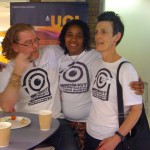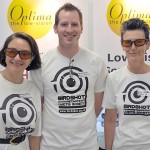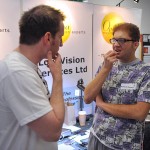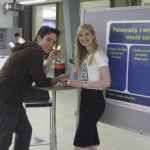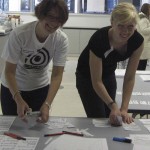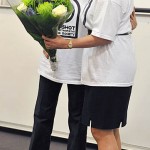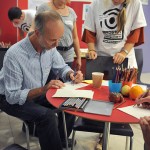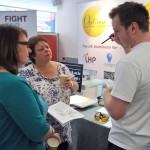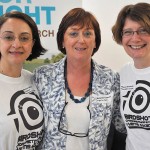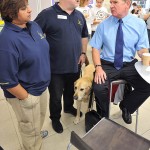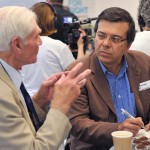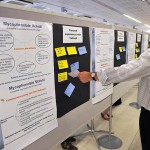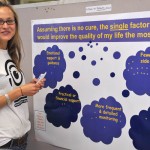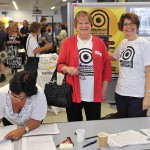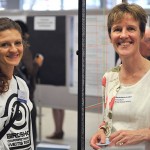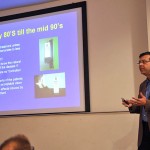At the Birdshot Day in September there was, not unsurprisingly, some discussion about what it is that triggers Birdshot. The answer the experts gave was that they did not know but that it was thought to possibly be some environmental factor. What was stated clearly, is that there needs to be research into this. The article below by Steve Connor, Science Editor of the Independent on Sunday makes interesting reading for people who suffer from Birdshot Chorioretinopathy. It was published in August 2010. Vitamin D is produced naturally by the skin but only in the presence of sunlight. Perhaps it may offer a possible clue which could be followed up? Vitamin D is after all a cheap commodity.
What does Viatmin D do?
Vitamin D protects the body against a range of serious illnesses by binding to the DNA of the body’s cells and directly controlling the genes implicated in diseases such as multiple sclerosis, diabetes and cancer, a study suggests.
It is the first time that scientists have found direct evidence to suggest that the “sunshine vitamin”, which is made by the skin in the presence of sunlight, directly controls a network of genes linked with a wide variety of serious disorders.
Although previous studies have linked vitamin D deficiency with a growing list of illnesses, especially the autoimmune diseases such as multiple sclerosis, rheumatoid arthritis and type-1 diabetes, until now scientists have not been able to show how it could trigger so many different disorders.
The latest study suggests a possible mechanism by showing that vitamin D binds directly to parts of the human genome that house the genes known to be linked with these serious autoimmune disorders, which result from a person’s immune system attacking the body’s own tissues.
“A surprisingly large number of genes that have been highlighted by gene-associated studies in autoimmunity and cancer seem to be regulated by vitamin D,” said Professor George Ebers, a clinical neurologist at the Radcliffe hospital in Oxford.
“This is indirect, but intriguing evidence that vitamin D will prove to be a major player in the key gene-environment interactions that expose us to diseases,” Professor Ebers said.
It is estimated that a billion people in the world could be suffering from deficiencies in vitamin D, which can be ingested in the diet in small amounts but is primarily produced by the skin when exposed to direct sunlight, so the findings could have major health implications for people living in northern latitudes with low levels of sunlight.
The researchers, funded by the Wellcome Trust, analysed human cells that had been stimulated by the active form of vitamin D. They found that the vitamin D receptor protein bonded to a total of 2,776 sites along the DNA of the genome. They also found that the vitamin had a significant effect on altering the activity of 229 genes located near to these sites.
“We screened the whole genome and found all the sites where vitamin D binds. The evidence is now quite solid that not only is there binding but we’ve been able to show that it actually affects the functioning of the gene. It’s not just sticking to that region, it’s actually altering gene expression,” Professor Ebers said.
“We show there’s an excess of genes that are associated with a bunch of autoimmune conditions that seem to have the vitamin D regulation feature. I don’t think we can say [this is] cause and effect, but it’s not a coincidence. It is clearly not there by chance. There’s a very substantial bias among these genes that have been highlighted as playing a role in these autoimmune conditions, and that have turned out to be regulated by vitamin D,” he explained.
If the study, published in the journal Genome Research, is supported by further research it could explain why vitamin D plays such an important role in a wide spectrum of diseases and why people who are native to northern latitudes have over many generations evolved a white skin, which absorbs sunlight more efficiently than darker skin.
“Vitamin D status is potentially one of the most powerful selective pressures on the genome in relatively recent times. Our study appears to support this interpretation and it may be we have not had enough time to make all the adaptations we have needed to cope with our northern circumstances,” Professor Ebers said.
Sreeram Ramagopalan, of the Wellcome Trust Centre for Human Genetics at Oxford University, said the findings suggest vitamin D supplements may be important. “Vitamin D supplements during pregnancy and the early years could have a beneficial effect on a child’s health in later life,” he said.
Three ways to get your fix
*Vitamin D is produced naturally by the skin but only in the presence of sunlight. Sunshine contains ultraviolet light B (UVB) which converts a ubiquitious precursor substance in the skin, called 7-dehydrocholesterol, into vitamin D3. This can then be converted by the liver and kidneys into the biologically active form of vitamin D.
The vitamin is also present in relatively high amounts in fish and shellfish, and in lower amounts in eggs and dairy produce. By far the easiest and best way of delivering enough vitamin D to the body is to expose unprotected skin to direct sunlight for a few minutes each day. But light-skinned people are advised not to burn their skin.
